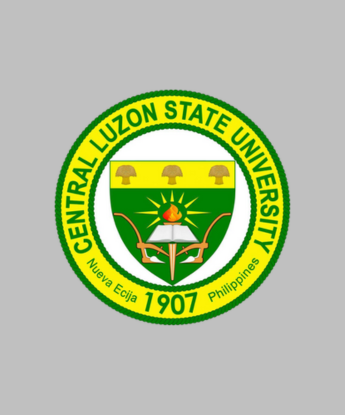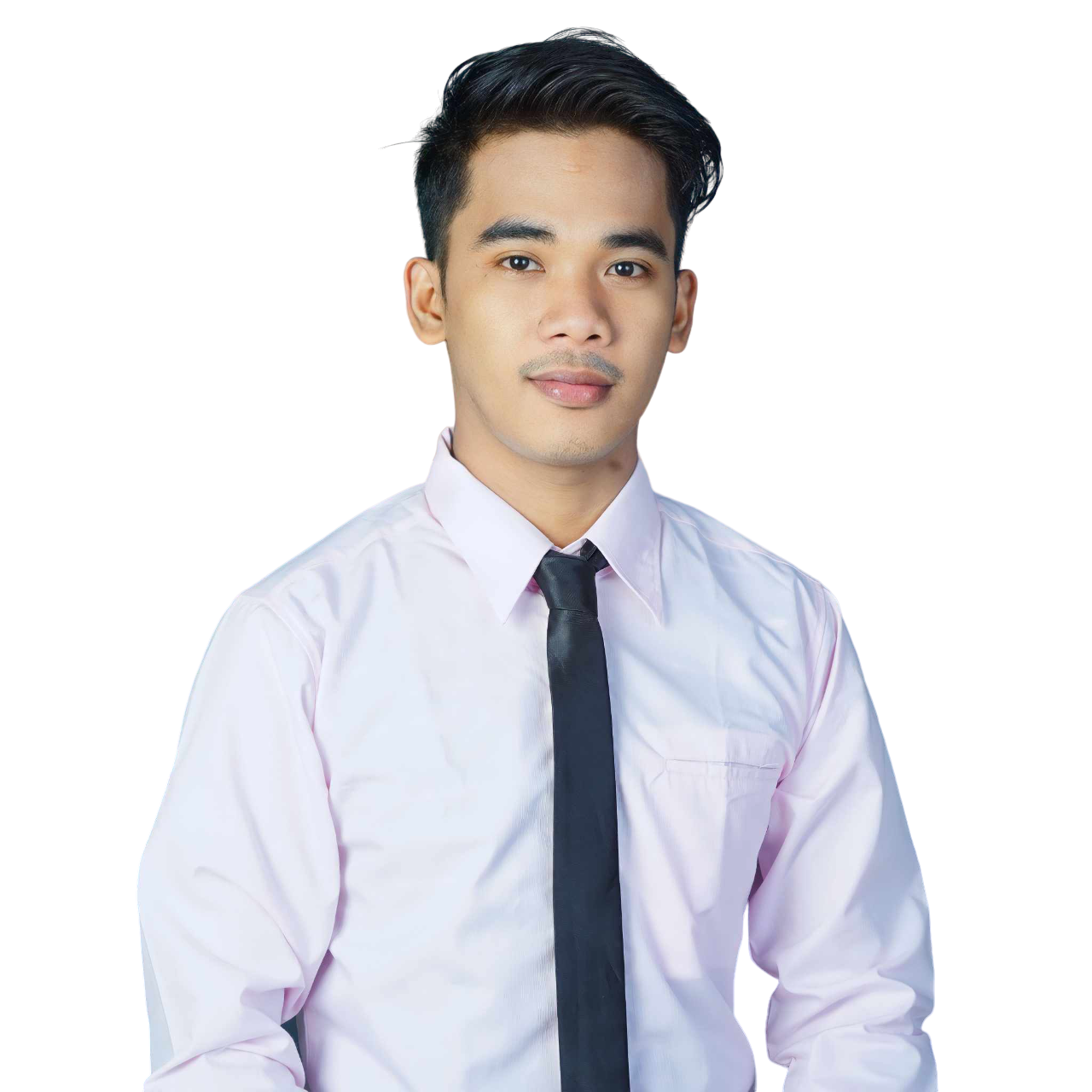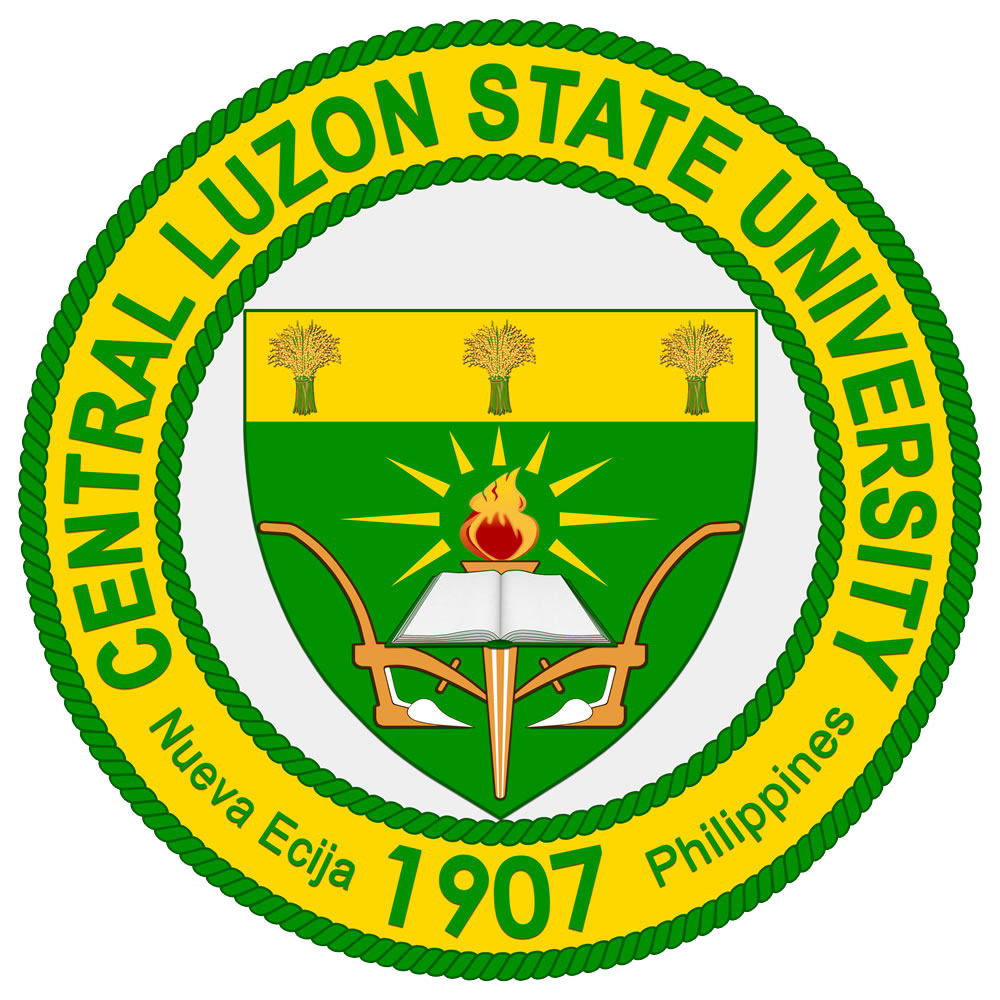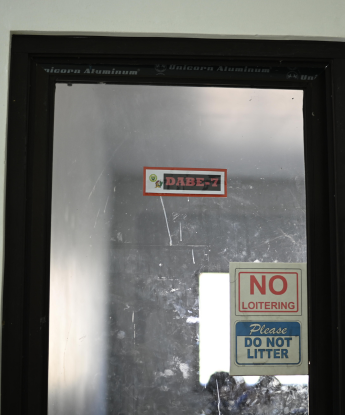DABE Objectives
- To develop relevant and quality curricular programs of the department.
- To produce quality graduates of the programs offered by the department within the allowable residencies.
- To generate innovative technologies and systems for the production and post-production of safe and secure food, bioproducts and bioenergy with smart utilization and management of the environment and natural resources.
- To provide engineering and technology expertise in the field of agriculture and affiliated industries for the country, the region and beyond.
DABE Faculty Members
Dr. Carolyn Grace S. Almerol
Associate Professor IDr. Sylvester A. Badua
Associate Professor IIIMay A. Cabral
Assistant Professor IEliza E. Camaso
Associate Professor I
Dr. Claire Marie M. Castillo
Associate Professor I
Dr. Marvin M. Cinense
Professor IIIMarlon T. Delos Santos
Assistant Professor INovalyn G. Delos Santos
Assistant Professor I
Dr. Melba D. Denson
Associate Professor I
Dr. Jeannie-Rose G. Fabula
Associate Professor IIDr. Jonathan V. Fabula
Associate Professor V
Marlon N. Galad
Instructor I
Jayson . Gelacio
Instructor I
Herald Kam G. Hernando
Instructor IDr. Jeffrey A. Lavarias
Associate Professor IV
Reniel Albert . Leron
Instructor IDr. Vitaliana U. Malamug
Professor VIDr. Wendy C. Mateo
Associate Professor V
John Vincent . Nate
Instructor I
Christopher S. Pascual
Associate Professor I
Ruel G. Peneyra
Associate Professor IV
Roldan T. Quitos
Associate Professor IGloria N. Ramos
Assistant Professor IIDr. John Paulo C. Sacdalan
Associate Professor IIINicasio C. Salvador
Associate Professor IDr. Elmar M. Villota
Associate Professor VDABE Undergraduate Programs
Bachelor of Science in Agricultural & Biosystems Engineering (BSABE)
click here for full program information
Areas of Specialization
- AB Machinery and Power Engineering
- AB Land and Water Resources Engineering
- AB Structures and Environment Engineering
- AB Process Engineering
Program Educational Objectives (PEO)
Three to five years after graduation, graduates of the BSABE program are:
- Licensed AB engineers who are providing leadership in planning, implementing, and monitoring of ABE projects and programs;
- Occupying supervisory positions in public or private organizations involved in the design and implementation of projects in ABE and other related fields in the local or global arena;
- Managing his own ABE-based business enterprises;
- Licensed professionals holding responsible positions in HEIs involved in the academic, research, development, and extension programs; and
- Licensed professionals pursuing advanced studies, participating in life-long learning processes, and keeping abreast to technology trends for continuing personal and professional development.
DABE Graduate Programs
Master of Science in Agricultural Engineering (MSAE)
click here for full program information
Program Educational Objectives (PEO)
Three to five years after graduation, the MSAE graduates are:
- Performing higher level or specialized professional practice with initiative, creativity, substantial degree of independence, leadership and in multidisciplinary fields;
- Providing leadership in planning, implementing, and monitoring ABE projects and programs;
- Occupying supervisory positions in private and public organizations; locally and internationally;
- Occupying Assistant to Associate Professor positions in ABE education; and,
- Pursuing advance studies in ABE and emerging related fields.
Doctor of Philosophy in Agricultural Engineering (PhDAE)
click here for full program information
Program Educational Objectives (PEO)
Three to five years after graduation, the PhDAEn graduates are:
- Demonstrating specialized, cognitive, technical and research competence independently and systematically;
- Providing leadership in planning, implementing, and monitoring agricultural engineering projects and programs;
- Occupying managerial positions in private and public organizations; locally and internationally;
- Occupying professorial positions in agricultural engineering education; and,
- Pursuing postdoctoral studies in agricultural engineering and emerging related fields.
Contact Details:
cengraduateprogram@clsu.edu.ph
DABE Awards & Recognition
Engineering Research and Development for Technology (ERDT) Member
In April 2007, a consortium of eight engineering institutions in the country was created to implement the Engineering Research and Development for Technology (ERDT) Program. Led by the University of the Philippines in Diliman, the other members of the consortium are Central Luzon State University (CLSU), the Ateneo de Manila University, the De LaSalle University, the Mapua Institute of Technology, the University of San Carlos, the Mindanao State University, and the University of the Philippines at Los Banos (UPLB). The graduate program in agricultural engineering is being offered by CLSU and UPLB.
CHED Center of Excellence in Agricultural Engineering
On July 2008, representatives of the Commission of Higher Education (CHED) - Technical Panel for Agricultural Education visited the College of Engineering relative to the application of the department for the Center of Excellence of its BSAEn program. After their evaluation, the CHED officially recognized CLSU as Center of Excellence in Agricultural Engineering.
DABE Researches
Faculty Research Undertakings
All faculty in the ABE Department are highly qualified researchers considering the continuous support that the University gives them in terms of its manpower development. CLSU continuously develops its faculty by sending them to reputable universities here and abroad in order to attain their MS and PhD degrees. In so doing, they are honed by conducting the required researches while they are pursuing their degrees, including thesis and dissertation researches. In addition, CLSU also allows them to attend workshops, trainings, research paper presentations, conventions, etc. in order to update themselves of the current research undertakings in the field of Agricultural Engineering. Likewise, CLSU provides all available research facilities and equipment of the University that are needed in the conduct of any approved research proposals.
All ABE faculty have the capacity to make their own research proposals. These proposals include researches in the fields of Soil and Water, Farm Power and Machinery, Crop Process Engineering, Renewable Energy, and Environment.
All ABE faculty are allowed to be a member of a multidisciplinary research team that needs the expertise and services of Agricultural Engineers. In the same manner, they also allow the participation of researchers in other disciplines whose expertise and services are also needed in the preparation and conduct of researches that are headed by them.
DABE Extension Activities
Aside from conducting researches, the ABE faculty and students also conduct extension and training activities as a way of transferring the knowledge gained and technologies developed throughout the years.
Extension Projects Implemented by the AE Department in the last five (5) years| Project | Application | Duration |
|---|---|---|
| Agricultural Engineering Board Exam Review | AE board exam review | May-July 2009 |
| Potential of aerobic rice technology in upland rainfed areas | Technology promotion &commercialization | WS 2012 |
Completed Research Utilized/Adopted as Extension Inputs in the last five (5) years
| Research Title | Researcher/s | Technology Generated | Extension Activity | Clientele |
|---|---|---|---|---|
| Design & Fabrication of Pelletizer for Feed Meal | AN Espino, EM Cruz, E Orden | Pelletizer | Technology dissemination | Small ruminant growers |
DABE Training Activities
Training and seminars are enhancement activities that provide avenues for both faculty members and students to be updated and trained as skilled individual in their specific fields of study. Through the years, CEn has been proactively participating in local and international trainings and seminars, either as guest participants or resource speaker.
| Seminar/Training | Inclusive Dates | Sponsoring Agency | Faculty Participant |
|---|---|---|---|
| Seminar Workshop on Conversion of Syllabus to OBTL Format | Dec. 20, 2013 | College of Engineering | Participants: CEn Faculty Resource Persons: RBGavino, ICAGULTO |
DABE Linkages and Collaborators
| Agency Institution | Address | Nature of Linkage |
|---|---|---|
| Ministry of Agriculture | Peoples Republic of China | International |





